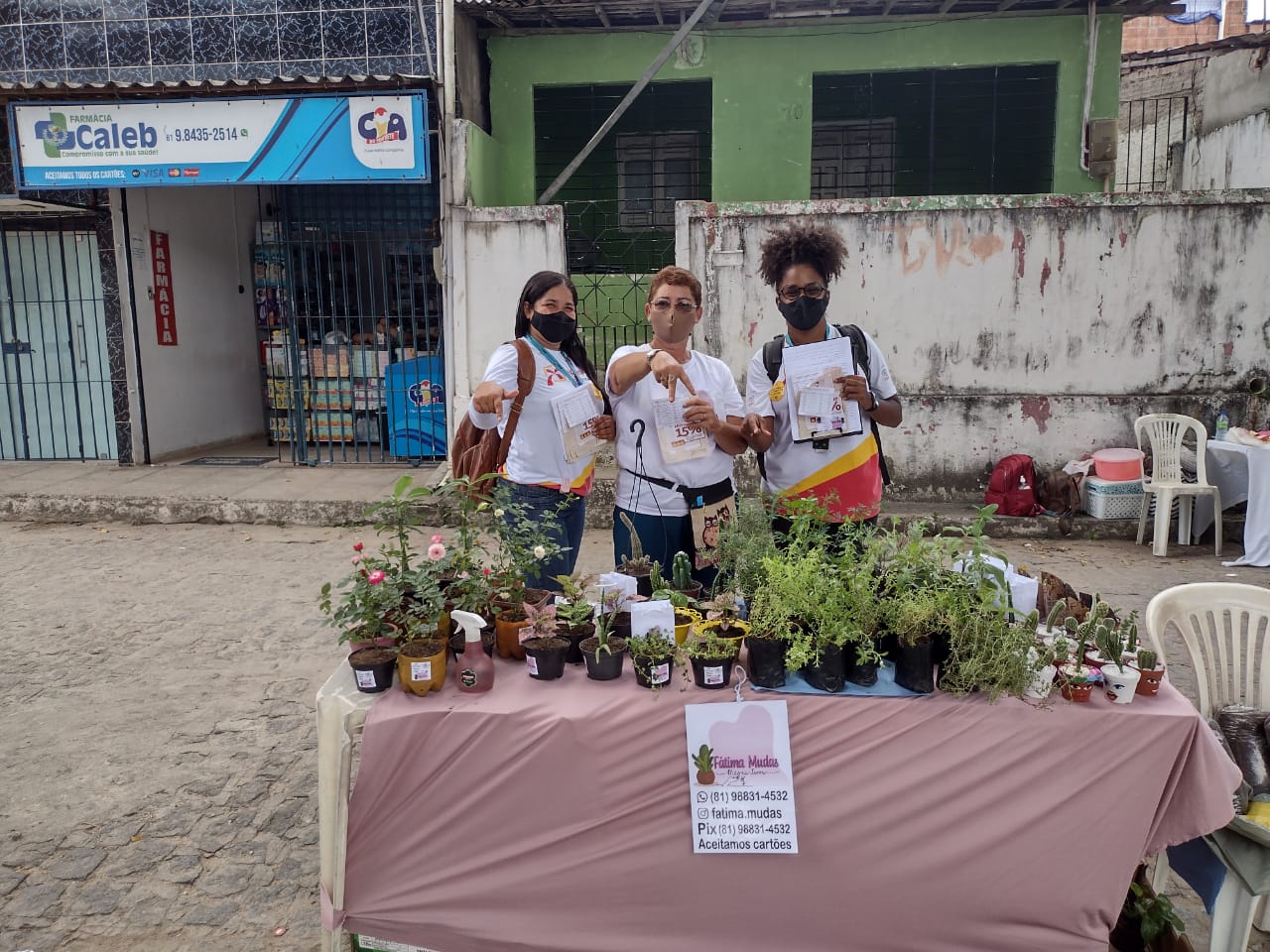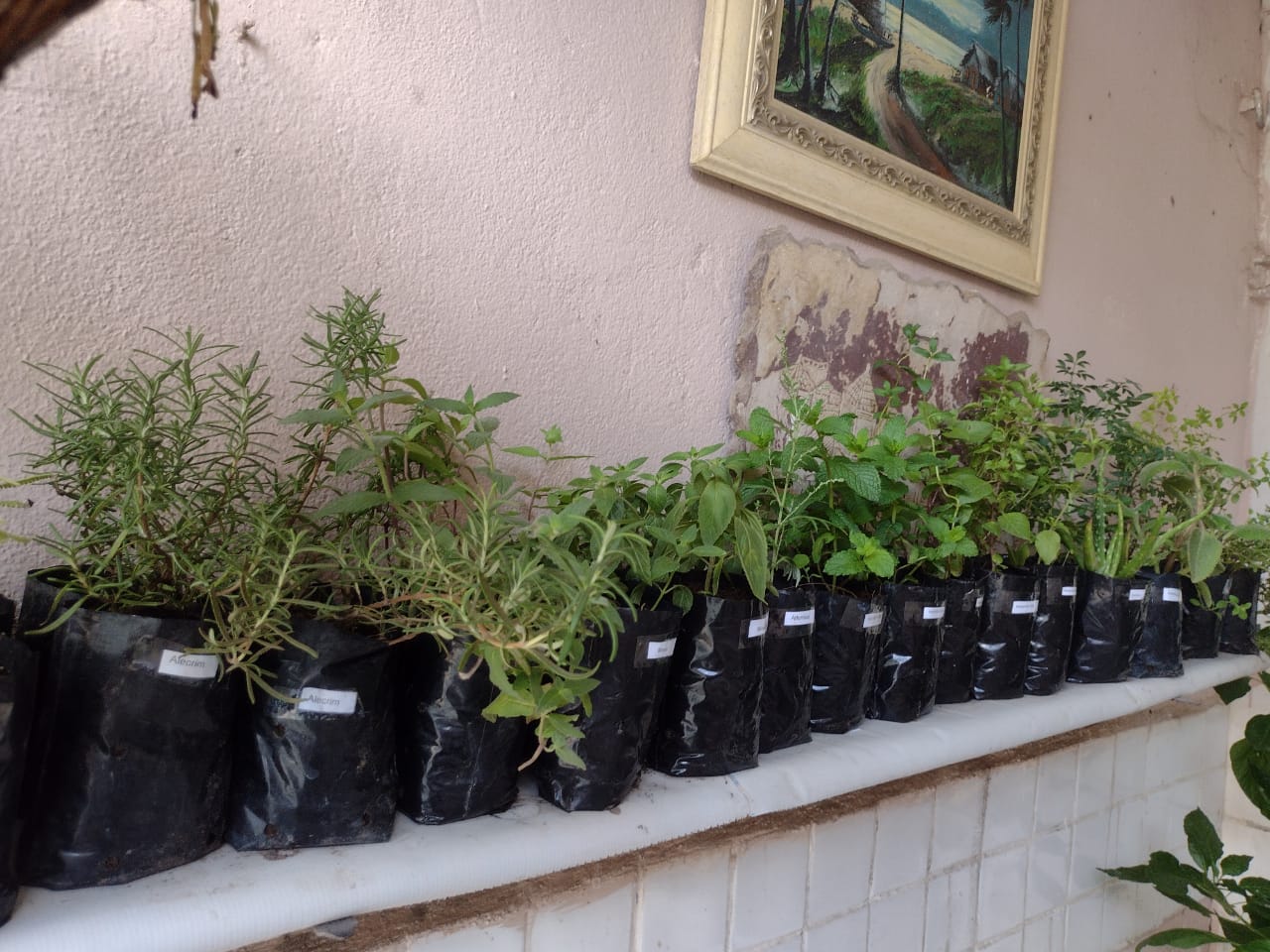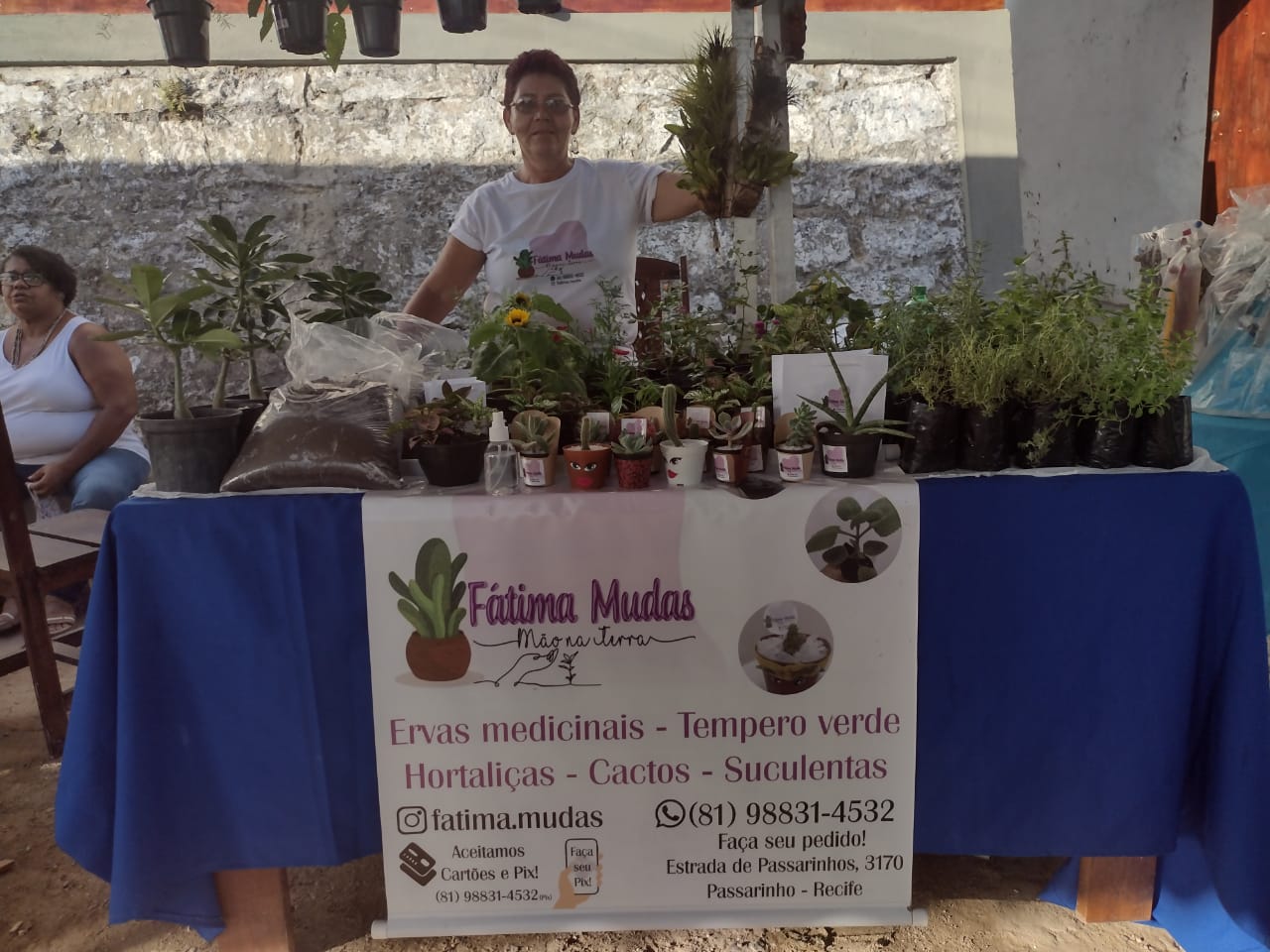Network for the Agroecological Transition stimulates agroecology in Recife’s peripheral communities
The Experimental Agroforestry System (SAFe/UFPE), a collective of students from the Federal University of Pernambuco, built the Network for the Agroecological Transition


Credit: Divulgation
By: Eduarda Nunes – Lupa do Bem / Favela em Pauta
Based on the cooperation of several factors and characters the environment produces and maintains life. It was on this principle of nature that the Experimental Agroforestry System (SAFe/UFPE), a collective formed by students from the Federal University of Pernambuco, built the Network for Agroecological Transition.
Since 2018, the group has been experimenting and stimulating ways to insert agroecology into the daily lives of people living in urban settings.

SAFE’s first actions were based on partnerships with public schools in the neighborhoods around the University City for the creation of educational gardens. Besides them, the group also gave the necessary support for the Massape Collective, of architecture, urbanism, and social activism, to start developing an agro-forest in the community of Santa Luzia, in the north zone of Recife.
The construction of geodesic nurseries, compost heaps, agro-ecological irrigation systems, and revitalization of flowerbeds are some of the activities carried out.
With the beginning of the pandemic, the activities had to be paused. In partnership with some collectives, like Kapiwara, Salve Maracaípe, Comunidade que Sustenta a Agricultura de Paudalho and close friends, the Rede Pela Transição Agroecológica was created.
The groups got to know each other through the creation of the hashtag of the same name and, as a network, they applied for a call for proposals from the Casa Fund to build and strengthen agroecology in the cities.


Primer on food sovereignty in times of pandemic
As a result of the project “Women and food sovereignty in times of Covid-19”, the first community to receive agroecological kits, training, local diagnosis and systematization of knowledge on agroecology was Passarinho, in the northern zone of Recife, through a partnership with the Women’s Space.
In the end, the booklet “We are all birds – agroecology and health in the cities” was produced as a result of the experience.
The success of the action was observed from the demand generated after its conclusion: other groups and communities also wanted to undergo the actions and training that the women of Passarinho had.
Through crowdfunding, the Network for Agroecological Transition created the Agroecological Communities in Cities project, which was based on the actions of Women’s Space.
The first experience served as a pilot so that, subsequently, nine communities received actions, training and kits to develop agroecology in their places of residence.
One of them is Dona Fátima, also a resident of Passarinho, but part of the neighborhood community center. Today she is one of the main partners of the network and also acts and mobilizes the community meetings organized by the Transition Network. In addition, Dona Fátima also provides seedlings for collective activities.


Passion for agroecology became a source of income
She says that she learned about agroecology through the project and fell in love: “I learned to make compost and today I make a living with my medicinal herbs, vegetables and ornamental plants”.
Doña Fatima also believes that the Network was and continues to be very important for the women of the community, because it was from Agroecology in the Cities that they learned to value and manage the land and nature that surrounds the neighborhood.
Understanding that agroecology unites the countryside and the city, the network is currently working on the fronts of agroecological education and community strengthening. From these, individuals and community organizations from the north to the south of Recife receive support for actions that stimulate agroecological practices in their neighborhoods.


How to accompany and support the struggle for the institutionalization of SAFE
Despite the impact that SAFE promotes in the peripheral neighbourhoods and especially among women in the communities, the initiative has not yet been formally integrated into the Federal University of Pernambuco.
After the pandemic, a significant part of the members have already graduated and fear the disappearance of the collective. For this reason, a petition is being circulated to request support for the group to become an extension project of the university and for the work to have continuity. To follow and support the Agroecological Transition Network follow the project on Instagram.


